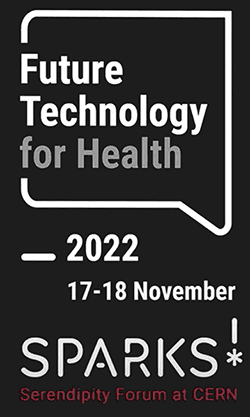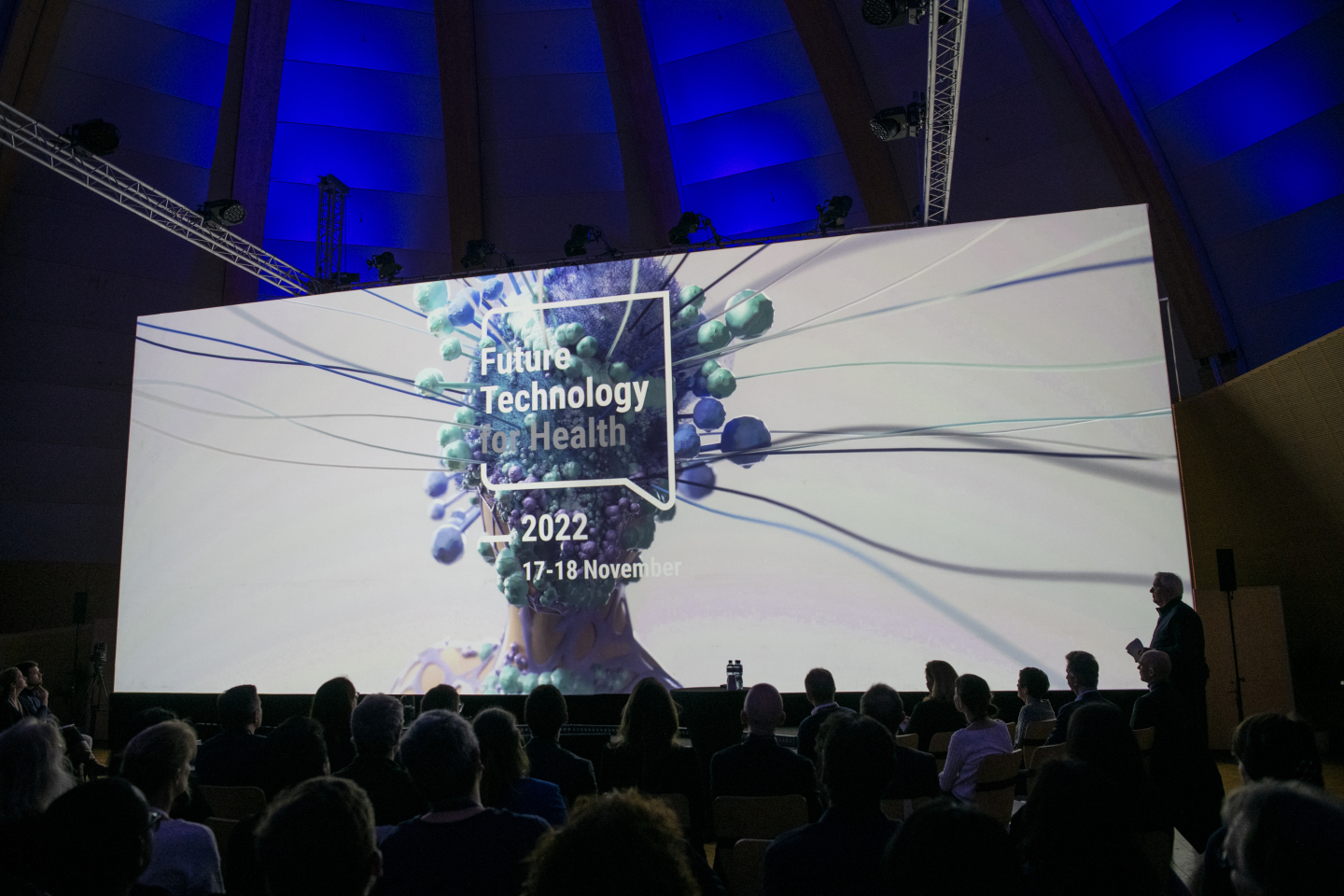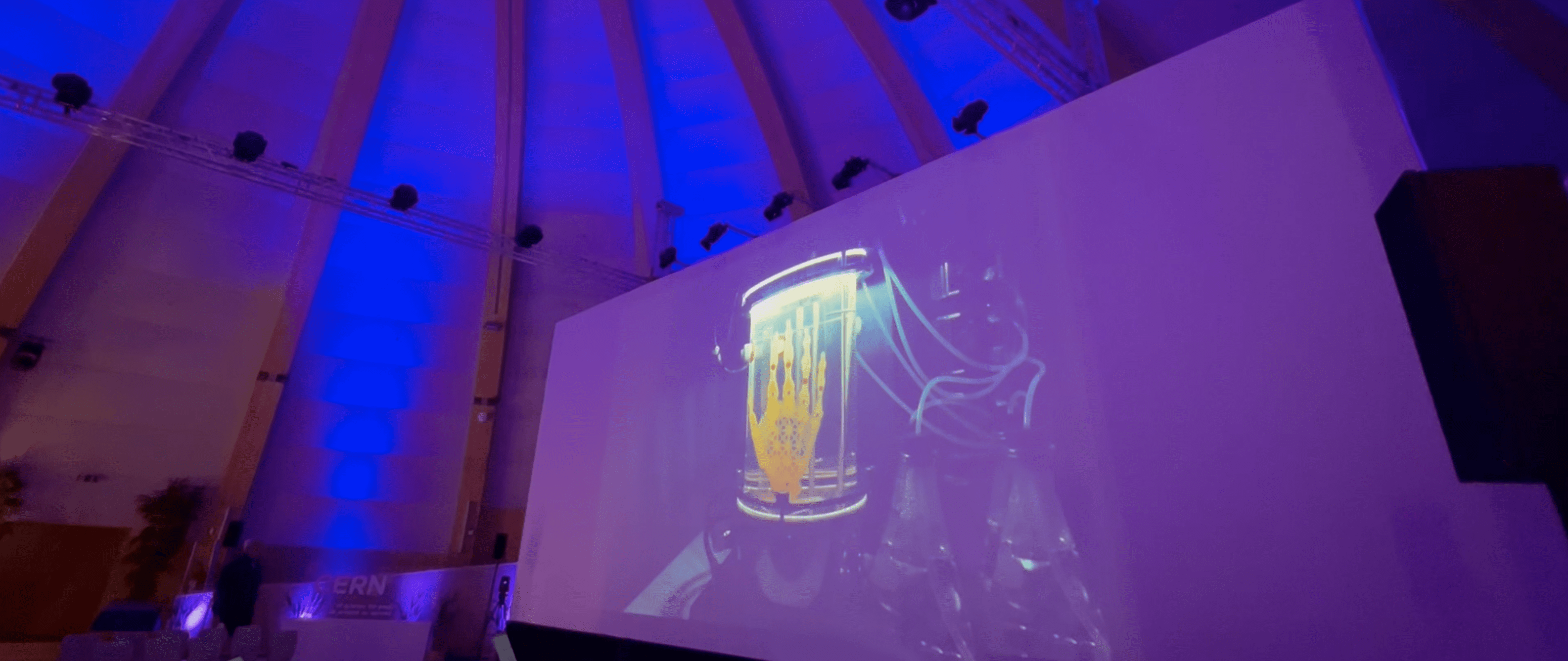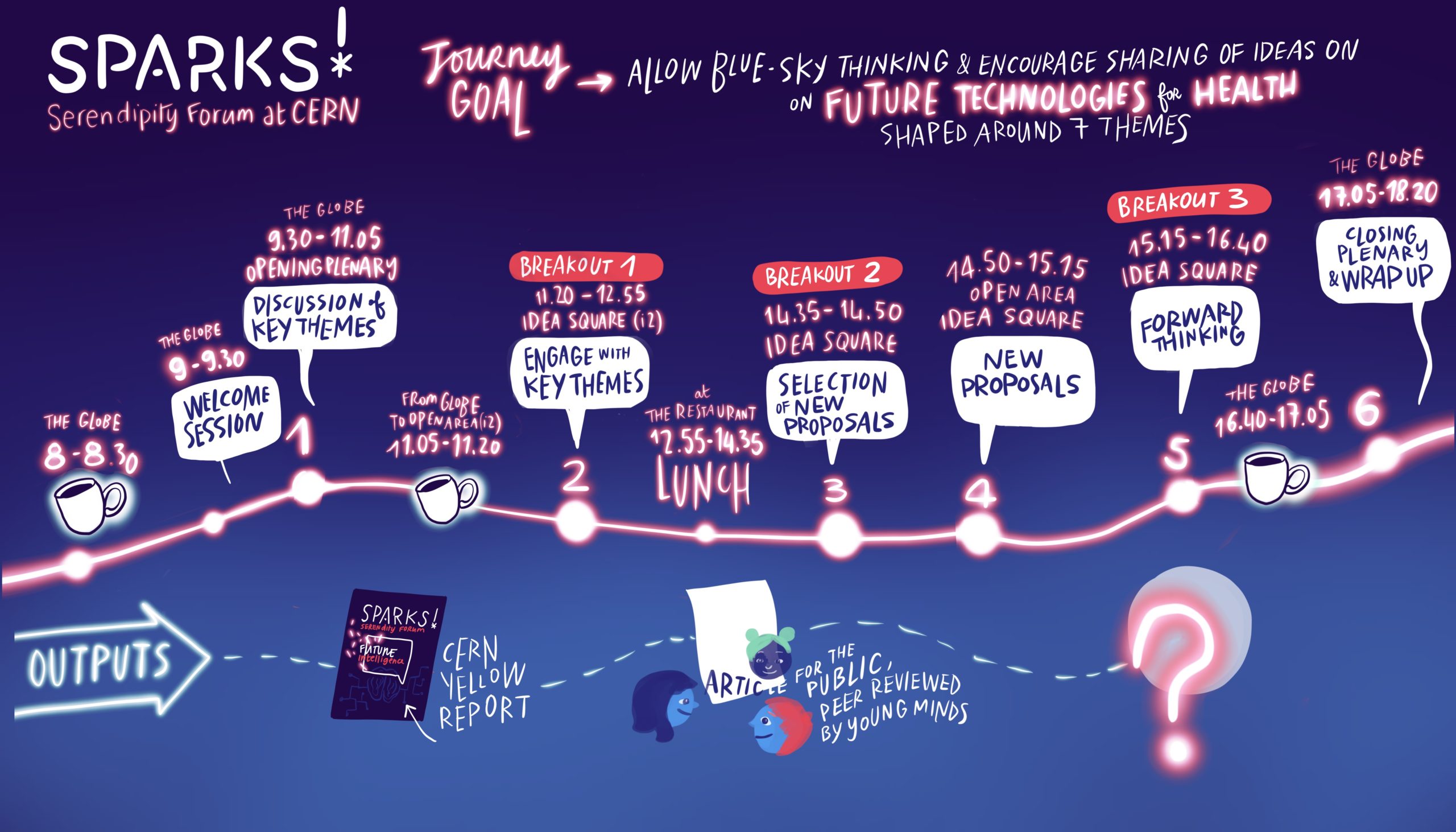CERN Sparks! Future Technology for Health Forum
16 -18 November 2022
CERN
European Organization for Nuclear Research
Globe of Science and Innovation
Espl. des Particules 1, 1217 Meyrin, Switzerland

Discover the latest developments in Future Technology for Health at CERN’s Sparks! Forum. Join global experts as they discuss the intersection of medical technology, science, ethics, and big topics of the future. With a focus on interdisciplinary connections, the forum will provoke thought-provoking conversations and spark new ideas. Art, (including SciArt by Amy Karle) also has a place in the conversation of driving interdisciplinary health innovation and the impact of technology on society.
Amy’s video starts at 3:11:00
The theme for the second edition was Future Technology for Health. Whether in the domains of prevention, diagnosis or treatment, the topics for this edition of Sparks! sought to ask new questions linking medical technologies to fundamental science, ethics, globalisation and more.
A Look at The Program
from https://home.cern/news/news/cern/sparks-talks-videos-available-online
“The Sparks! Talks were held at the Globe of Science and Innovation at CERN on 17 November 2022. Bruno Giussani (TED) once again hosted our live Sparks! event, not only introducing our guests, but also interviewing some of them. In session 1 he addressed “Treating people”, while in the second, the subject was “Keeping people healthy”. In a now long-standing collaboration, our opening sequence was a video creation by art collective Ouchhh, who this time used data from the Human Cell Atlas to create stunning visuals on our theme of future technology for health.
The first talk was given by WHO’s Chief Scientist, Soumya Swaminathan, who addressed “Digital tools and other efforts for preventing and dealing with future global health challenges”, a highly relevant subject in these times, allowing us to bring our audience into the heart of the subject and its importance for society at large. Then, Bruce Levine gave us an overview of the technology he researched and developed in a talk entitled “Treating untreatable cancers with gene therapy”. Bringing matters back to CERN-centred technology, Magdalena Kowalska then presented her work in the “Future of detection and imaging”, which was followed by CERN Director for International Relations Charlotte Warakaulle answering Bruno Giussani’s questions about the Organization’s involvement in “CERN technologies for health”. Olaf Blanke, a professor at the nearby EPFL, presented his work in neuroscience and “AR/VR technology for brain research”. Then, bringing the subject back to a more global dimension, Els Torreele gave a talk about “Rethinking health innovation”. Finally, Bruno interviewed Andrew Hessel, who joined us via Zoom from California and answered questions about a “Genetic network”.
The second session started with another remote interview conducted by Bruno, this time with Jane Metcalfe, co-founder of Wired and now the head of NEO.LIFE, who answered questions about “Biological revolution, synthetic biology”. Continuing on the session’s theme of “Keeping people healthy”, Mark Kendall of WearOptimo presented his take on “Wearable sensors for better health”. Speaking on behalf of the Snyder Lab at Stanford, Ariel Ganz followed up with “Precision health and thriving”, giving us an insight into how data from sensors is useful further down the line. Coming back to the global level, Rolf Apweiler from EMBL-EBI spoke about “The bioinformatics revolution”, bringing data management to the forefront. From there, Ankur Vora of DeepMind introduced us to “AI for health and the AlphaFold case”, reminding returning viewers of last year’s Sparks! theme: future intelligence. Giving us a successful example of a collaborative method for future science, Muzlifah Haniffa gave a talk about the “Human Cell Atlas”. Concluding the event this year, author Juan Enriquez reminded us of the importance of ethics and the changes in definition we will continue to be faced with in the future with his talk “Evolving technology changes ethics”.
Given that multidisciplinarity is at the heart of Sparks! mission, we included two art pieces in the programme: SciArt Work: The Beauty of Blood Flow Analysis by the Fraunhofer Institute for Digital Medicine, and an extract from a film called Bringing Bones to Life about artist Amy Karle and her artwork Regenerative Reliquary. We believe that the inclusion of artistic pieces in the Talks programme not only allows the audience to take a break from the content-intensive presentations, but also helps us remember that, when talking about visions of the future, art has its place in the conversation.”


SCHEDULE OVERVIEW from https://indico.cern.ch/event/1204516/
The Sparks! Serendipity Forum is a multidisciplinary science innovation forum and public event taking place on 16-18 November 2022 at CERN.
16 Nov Pre-event
Join us for visits of the CERN site, or attend a seminar about respiratory pathogens presented by CERN Occupational Health & Safety and Environmental Protection Unit (registration is required, please indicate your interest in the form below). You are also invited to dinner by the lake in Geneva.
(Those preparing a Talk for 17 Nov have the opportunity to rehearse).
17 Nov Seminar CERN’s impact on medical technology – 14:00 – 15:30 CET (optional)
Manuela Cirilli (CERN Knowledge Transfer) will be holding a seminar about the medical applications of CERN technologies, in discussion with colleagues from other departments.
17 Nov Sparks! TALKS – 16:00 – 19:30 CET
This is a live production which will be recorded (à la TED). Some of you have been invited to give a talk as speakers, everyone else is invited to attend as audience; There is space for guests of speakers and participants, but the general public will be only online.
18 Nov Sparks! FORUM – 08:30 – 18:00 CET (the forum is a full day activity involving all 50 participants)
List of participants: https://sparks.cern/participants
We will be moving away from the traditional conference format and are inviting you to spend the day indulging in in-depth discussions. The 50 participants of Sparks will be led through a dynamic agenda composed of plenary and break-out sessions specially designed for Sparks! to foster multidisciplinary interactions. Get ready to collaborate, agree to disagree, learn and unlearn together.
Guiding questions:

Sparks! is an annual event organized by CERN as part of the CERN & Society program. It brings together experts from different fields to discuss future technology and its impact on health. The 2022 event took place on 16-18 November and featured a series of talks and a full-day forum for participants with diverse areas of expertise. The speakers included representatives from WHO, EPFL, EMBL-EBI, and the Human Cell Atlas, among others. The discussions covered a broad range of topics including medical imaging, precision medicine, mapping the human body, ethical considerations, and equitable global access to healthcare. The event was supported by the Didier and Martine Primat Foundation and Rolex. Artistic work, including by Amy Karle were also included in the program to highlight the importance of art in discussions about the future.

